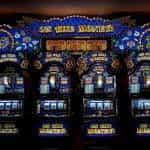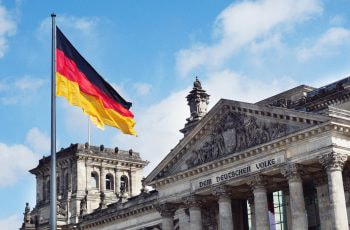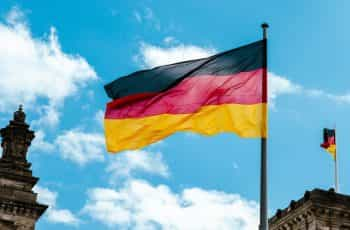Many Berlin Gaming Halls to Shut
Plans to introduce new regulations in the German capital that would see many of the gambling arcades in the city close have been met with harsh criticism. Much of the backlash has come from giants of the industry such as Novomatic and the Gauselmann Group. Both of these entities have reacted negatively to the incoming closure of most of the 496 gaming halls in Berlin.

The new legislation affecting gambling halls in Berlin will see the number of these venues in the city dwindle from 496 to 120 as a result of the new distancing policy between such venues. ©wal_172619/Pixabay
The recent law ordering this closure has been in the works for several years now. The legislation aims to introduce a minimum separation of gambling venues in the city. Under the new legislation, it will be prohibited for these to be situated within half a kilometer of one another. It will also be illegal for such a venue to be closer than 200 meters to a school.
The new law will also impact the business hours of such gaming arcades. Henceforth, these venues will only be allowed to open from 11 AM to 3 AM. Additionally, a limit of eight devices per venue will be introduced.
Since last year, 124 license renewal applications for such venues have been rejected because of the new laws. A further 36 were also denied licenses to operate in Berlin due to their proximity to schools.
Any venues that are not eligible to have their licenses renewed are now expected to close within half a year of the implementation of this new law. This window has allowed these venues to mount legal complaints about their closure. It is worth noting that in the past year 154 court battles were fought but the government won over 100 of these.
Overall, the effect of this new law will be to slash the number of gambling arcades in Berlin to 120, down from nearly 500. It will also limit how many machines are allowed in Berlin to 960, leaving the population with 25 gambling machines for every 100,000 people present in Berlin.
This is a significant reduction when compared to the German average for the number of gambling machines per 100,000 people, which stands at 170.
There has been a fair amount of upheaval in the regulation of the German gambling market in recent months. The legislation affecting gambling arcades in the German capital will be followed by the new laws that aim to regulate the online gambling market in the country more effectively that is due to be introduced in July of 2021.
Backlash From Gauselmann and Novomatic
Gauselmann was quick to point out this discrepancy between the numbers of gambling machines in the capital compared to the national average in its statement on the new legislation. The group has voiced its concern that the average number nationally reflects the appetite of the public for such games, and this will be no different in the capital, according to the group.
As a result of the dwindling supply of gambling machines, the Gauselmann Group is, therefore, anxious that the supply will subsequently come from more dubious sources. It believes this because there will still be demand for such devices and yet, the legal supply will be limited. This could provide a window of opportunity for illegal offerings to establish.
This sentiment was echoed by Löwen Entertainment, which is owned by the Novomatic Group. This operator manages a chain of Admiral outlets in Germany.
Löwen Entertainment reiterated the message that Berlin is already an area where illegal gambling activity is rife. The operator fears that with this new legislation, chaos will descend on the city’s gambling sector and illegal gambling will become the norm in the city.
The operator agreed with the initial premise that the government put forward when drafting this legislation, which was to protect consumers in the city. The difference in suggested approaches is night and day, however.
According to Löwen Entertainment, the best method to protect players by reducing illegal gambling and gambling amongst minors is to provide well-regulated legal offerings to the public. By making it harder for consumers to safely gamble, the legislation could provide an opportunity for organized crime in the city, which doesn’t have the same obligations to protect players.
There is some data to support these claims as well. According to the operator, there are some 2,000 unlicensed fixed-odds machines in the city of Berlin, a higher figure than has ever been recorded. The legislation could cause this figure to rise substantially.
Not only is there the issue of organized crime, but also the impact the closures on those working in the industry. It has been suggested that many of those employed in the sector could face losing their jobs. In Berlin, the industry employs 70,000 people, so the closure of the majority of the gambling halls will undoubtedly have a significant effect on many of these.
The government is also currently preparing to implement a similar policy for bookmakers in the city. Come October, these venues will no longer be allowed to be located within 200 meters of schools or youth centers in the city. These will also have to comply with a 500-meter distancing requirement from one another.
German Gambling on the Rise
This new legislation is being implemented at a time when the German gambling industry is showing positive signs. Lotteries in the country have shown signs of growth after the first half of the year, and some recent analysis has suggested that the sector could grow to €3.3 billion over the next four years.
The national lottery in Germany, which is run by Deutscher Lotto- und Totoblock, has revealed that its sales increased by 4.2% during the first half of the year. These sales totaled €3.75 billion and mark a significant increase during a time when many have been worried about the severe adverse effects of the COVID-19 pandemic on the industry.
The operator was keen to emphasize the positive impacts that such sales have on the country as a whole, as 40% of the revenue is directed straight back into the state governments. Overall, for the first half of the year, this represents €1.5 billion in taxes that have gone back into the country.
Deutscher Lotto- und Totoblock is planning to introduce a new version of its product Lotto 6aus49 in the coming months. The first iteration of this will be on the 23rd of September and will lead to bigger and faster-growing prize pools for the lottery.
Growth such as this is partially responsible for the suggestions made by Goldmedia that the German gambling industry would experience significant growth in the years up to 2024. This recent report has suggested that, despite the impact of the novel coronavirus, the German gambling sector is set to grow by €3.3 billion during this time.
A drop in the revenue generated during 2020 has been predicted. This is mainly due to COVID-19 and its impact on the financial security of many, as well as their ability to gamble in physical venues. The report did, however, forecast growth for online casino games in the coming years, as well as for gaming machines, casinos, and sports betting during the coming years.



